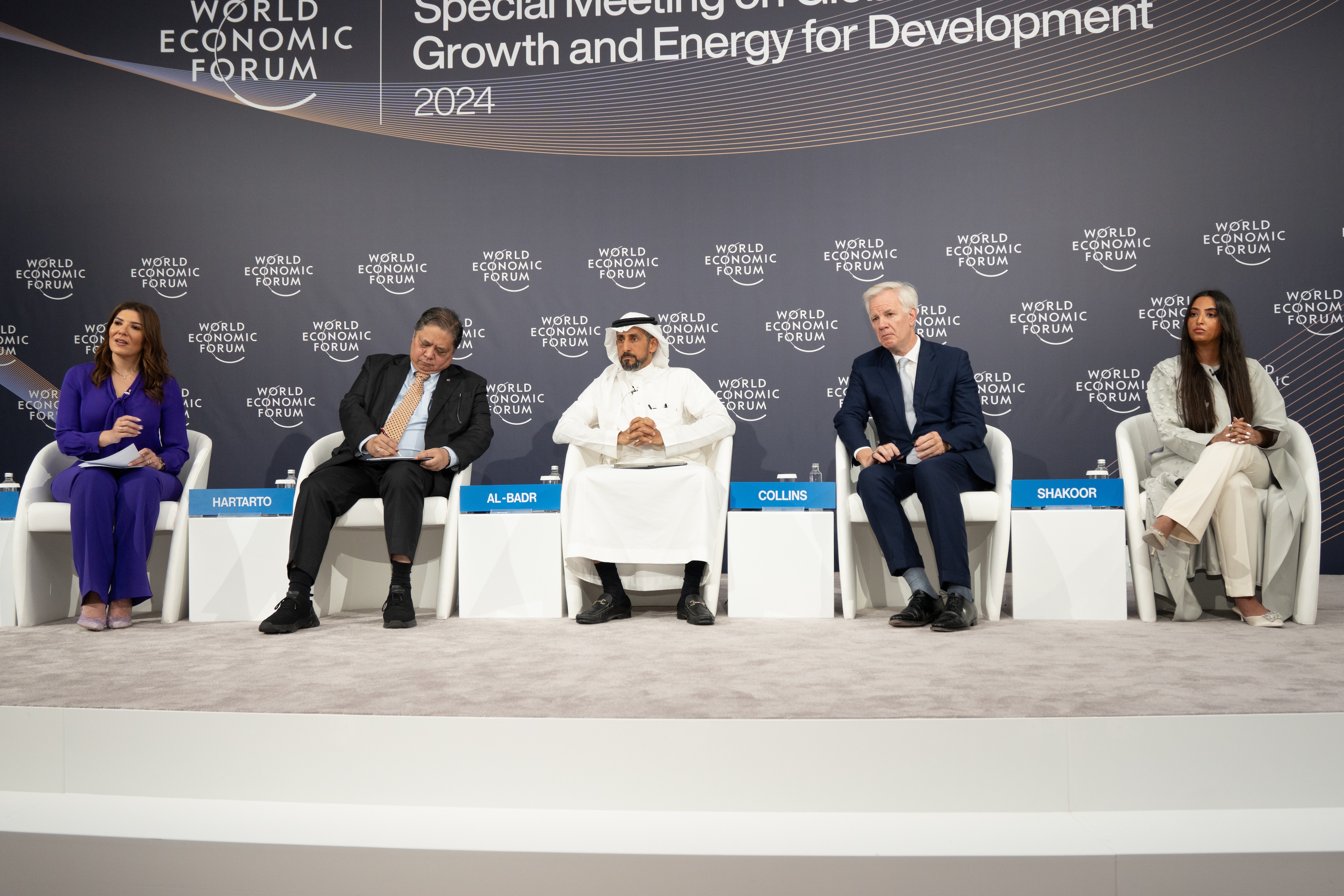Why talented women are scared off the fast track


Get involved with our crowdsourced digital platform to deliver impact at scale
Stay up to date:
Future of Work
Are talented women being scared off the fast track?
New research from the Center for Talent Innovation (CTI) suggests this may be the case. Women Want Five Things shows that a profound misunderstanding of power prevents women from giving full rein to their career ambitions.
Although societal norms have shifted as more women assume positions of power, few stories extol their sense of fulfillment, intellectual excitement and sheer joy inherent in having the top job. Instead, the prevalent narrative is still one of sacrifice: the toll career ambitions take on one’s personal life.
The result: Too many women step off the fast track because they see an executive role delivering a hefty salary but little else that they value.
Even worse, employers that have invested considerable sums developing women for leadership roles are in danger of seeing their investment go out the door. This not only raises doubts within companies about whether women “have what it takes” to get to the top but also ultimately hurts the organization by limiting diversity in the C-suite. As CTI’s 2013 innovation research shows, companies whose leadership remains homogenous lose a critical competitive edge: They’re less likely to elicit market-worthy ideas, less likely to green-light them, and less likely to increase market share or grow their global footprint.
Women perceive the burdens of leadership outweighing the benefits – a perception shared by 60 percent of U.S. women and 65 percent of U.K. women. The fact is, CTI’s study shows, rather than a limitation, power is a plus for women. It can enhance both their professional and personal lives. In fact, the data reveals, power is what allows women to thrive.
A closer look at what mid-career women (ages 35 to 50) want from their careers exposes their misunderstanding of power and illuminates the benefits it can bring:
Women want to flourish. However, the majority of women without power – 82 percent of women in the U.S. and 78 percent in the U.K. – believe that an executive position would not allow them to flourish. This assumption is incorrect as 58 percent of women with power in the U.S. and 36 percent in the U.K. report having the ability to flourish.
Women want to reach for meaning and purpose. Yet, the majority of women without power – 74 percent in the U.S. and 72 percent in the UK – expect that an executive position would not allow them to have a lasting impact in their profession, advance causes important to them, and be a role model for their family and community. The research finds, however, that 63 percent of women with power in the U.S. and 40 percent in the U.K. say their careers offer them that opportunity to reach for meaning and purpose.
Women want to excel. They want intellectual challenge to enhance their knowledge and become a recognized expert in their field. Thirty percent of women without power in the U.S. and 37 percent of those in the U.K. don’t expect that possibility from an executive position but 87 percent of women with power in the U.S. and 63 percent in the U.K. report being able to excel.
Women want to empower others and be empowered. The majority of women without power – 86 percent in the U.S. and the U.K. – believe that an executive position would not afford them the ability to empower others and be empowered: that is, have sponsors – senior colleagues willing to take a bet on them and advocate for their next big opportunity – and build a network of protégés who expand their capabilities, extend their reach and burnish their brand. In fact, 61 percent of women with power in the U.S. and 35 percent in the U.K. enjoy the ability to empower others and be empowered.
Women want to earn well. Women say it’s important to them to attain financial security and financial independence, as well as to sustain a comfortable lifestyle for themselves, their children and their parents. Some 71 percent of women without power in the U.S. and 55 percent in the U.K. expect an executive position would allow them to earn well. The interesting fact here is that only 37 percent of women with power in the U.S. and 24 percent in the U.K. report earning well.
The report also finds that women who perceive that an executive role will fulfill their value proposition are more likely to strive for top leadership roles – 34 percent vs. 12 percent in the U.S. and 43 percent vs. 10 percent in the U.K. And our data show that high-achieving women have the requisite skills and commitment to go for the top job. Many also have the desire especially when they’re starting out – although it drops drastically from 36 percent for women in the U.S. between the ages of 21 and 34 to 17 percent to those between 35 and 50.
Changing women’s perception of the rewards of a top job is a crucial step that more companies must take if they are to maximize their investment in their high-potential women and enable them to realize their full leadership potential. They must provide role models who give voice to the substantial joys and rewards of leadership, thus inspiring more qualified women to stay connected through the difficult mid-career years. They must sustain women’s ambition, both by meeting their needs as they progress toward leadership and by ensuring that leadership actually delivers on women’s value proposition.
Formal initiatives can play a transformative role:
- Executive leadership programs change women’s perceptions of leadership by exposing them to leadership in action. Bank of America’s Global Women’s Conference brought together more than 300 senior female leaders to promote a continuing agenda of initiatives related to women’s empowerment and advancement of goals. “Women want to know how other women have handled trying to balance a new baby with a demanding job or how to network effectively across the company,” explains Cynthia Bowman, senior vice president of leadership development and diversity and inclusion at Bank of America. “The informal mentoring that goes on in these circles by women who’ve powered through is incredibly impactful.”
- Programs that offer flexibility keep women engaged as competing agendas – caring for aging parents, rearing children, volunteering in the community, participating in an athletic event – vie for their energy and attention. Merck KGaA recently expanded mywork@merck, a flexibility program enabling its 2,500 exempt employees to work from wherever they want. “With this freedom to work wherever we have the connectivity and tools to be productive, we can much better reconcile our professional commitments with our private lives, which is very motivating,” says Katja Wunderlich, a senior expert in employability at Merck.
- Programs that seed and cultivate sponsor-protégé relationships keep women on track for top jobs by providing support, opportunities for stretch assignments, protection, and advocates. AT&T’s Executive Women’s Leadership Experience and Champions programs, targeting respectively outstanding women at the general manager and vice president levels, ensures these high-potentials have access to the right sponsorship and advocacy at the C-suite level. These programs have led to higher promotion rates for women and people of color, and better grooming of top talent at an earlier stage in their careers.
This article is published in collaboration with LinkedIn. Publication does not imply endorsement of views by the World Economic Forum.
To keep up with Forum:Agenda subscribe to our weekly newsletter.
Author: Sylvia Ann Hewlett is the founder of Center for Talent innovation & Hewlett Consulting Partners.
Image: A woman is silhouetted next to a solar panel display by solar module supplier Upsolar at the fourth International Photovoltaic Power Generation (PV) Expo in Tokyo March 2, 2011. REUTERS/Yuriko Nakao.
Don't miss any update on this topic
Create a free account and access your personalized content collection with our latest publications and analyses.
License and Republishing
World Economic Forum articles may be republished in accordance with the Creative Commons Attribution-NonCommercial-NoDerivatives 4.0 International Public License, and in accordance with our Terms of Use.
The views expressed in this article are those of the author alone and not the World Economic Forum.
Related topics:
The Agenda Weekly
A weekly update of the most important issues driving the global agenda
You can unsubscribe at any time using the link in our emails. For more details, review our privacy policy.
More on Jobs and the Future of WorkSee all
Simon Torkington
May 1, 2024
Johnny Wood
May 1, 2024
Giannis Moschos
May 1, 2024
Maria Mexi and Mekhla Jha
April 30, 2024
Stéphanie Bertrand and Audrey Brauchli
April 29, 2024
Elselot Hasselaar
April 29, 2024






